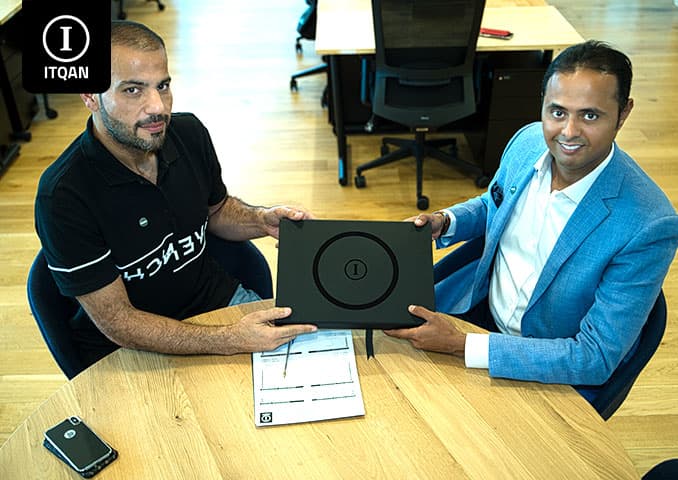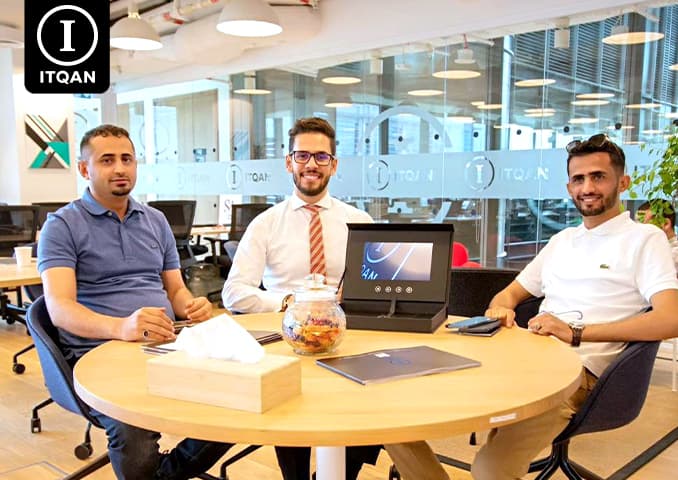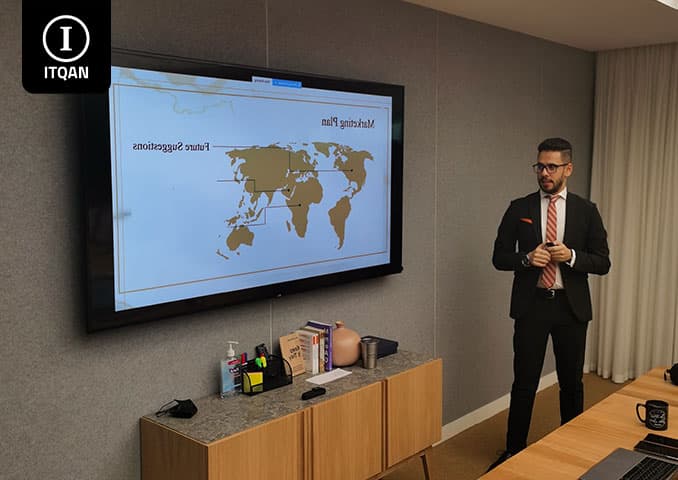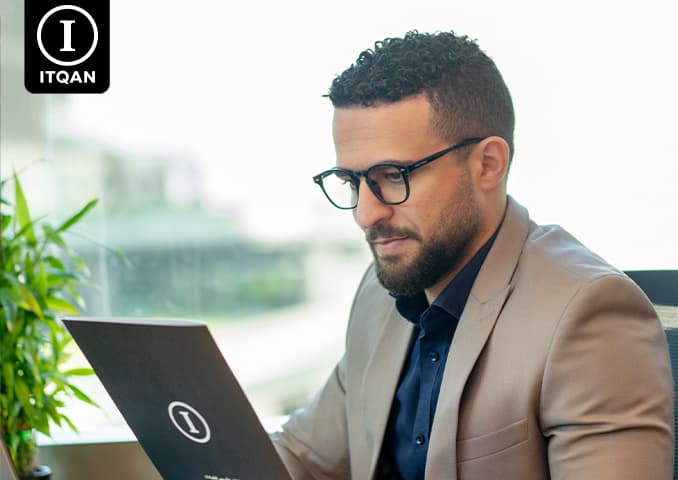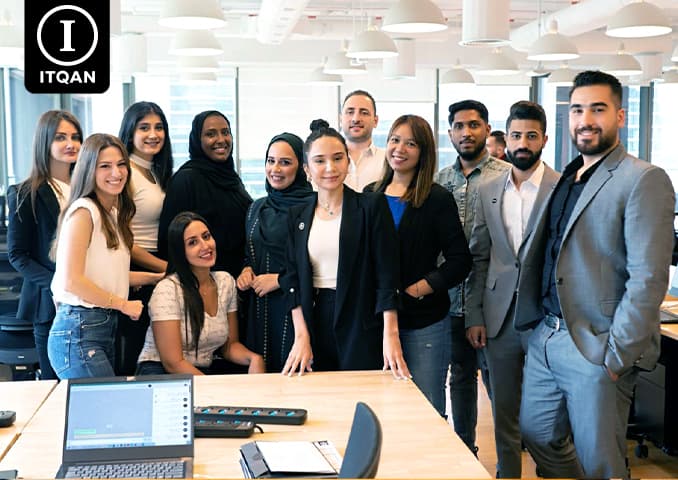In the dynamic and changing world of accounting, every successful accountant needs a set of basic tools that contribute to achieving accuracy and efficiency in his work. These tools are not limited to hardware and software, but also include the skills and knowledge that enable the accountant to deal effectively with financial challenges and accounting reports. Among the essential tools that are indispensable, advanced accounting software stands out as a major tool in organizing and managing financial data, in addition to using financial calculators to speed up complex calculations. A thorough knowledge of accounting standards and tax details also plays a pivotal role in ensuring compliance and providing sound advice. In this article, we will review the most important tools that every successful accountant needs to ensure success and continuity in his profession.
جدول المحتوى
ToggleThe most important tools that every successful accountant needs
For every successful accountant, there is a set of basic tools that are essential to achieving success in the field of accounting. Here are the most prominent of these tools:
- Accounting Software: Advanced accounting software such as QuickBooks, SAP, and Xero are vital tools that help manage accounts, prepare reports, and analyze financial data efficiently.
- Financial Calculators: Financial calculators provide advanced computational capabilities to handle complex calculations, saving time and reducing human error.
- Microsoft Excel: Excel is one of the basic tools in accounting, as it is used to create spreadsheets, analyze data, and perform complex calculations.
- Cloud accounting software: These programs contribute to accessing data from anywhere, allowing accountants to manage accounts and financial reports remotely.
- Knowledge of accounting standards: Familiarity with International Accounting Standards (IFRS) or local standards is essential to ensure compliance with financial laws and regulations.
- Legal and Tax Tools: Understanding tax laws and tax compliance helps accountants provide accurate advice and avoid legal problems.
- Organizational and administrative tools: This includes using tools to organize time, manage projects, and store data in organized ways to ensure easy access and use.
- Personal Skills: These include skills such as analytical thinking, attention to detail, and the ability to communicate effectively with clients and co-workers.
- These tools are not only essential for achieving efficiency in work, but they also contribute to improving the quality of work and enhancing success in the field of accounting.
Company formation in Dubai
Establishing a company in Dubai can be an important strategic step for growth and success in the global market. Here are the key steps you need to follow to successfully establish your company:
- Determine the type of company: Choose the type of company you want to establish. It can be a limited liability company (LLC), a branch of a foreign company, a public joint stock company, or a sole proprietorship.
- Choose your business activity: Decide what business activity your company will be doing, as this affects the type of license required and the areas in which it can operate.
- Choosing a location: Determine the location of the company, whether in a free zone or in a general commercial zone. Each zone has its own advantages and restrictions.
- Choosing a company name: Choose a name that complies with Dubai naming laws, and the name must not be already registered and not violate public morals.
- Obtaining a trade license: Apply for a trade license from the Dubai Department of Economic Development or the competent authority in your chosen free zone. The license includes details of the business activity, name, and legal structure.
- Preparing legal documents: Gather and prepare necessary documents such as articles of incorporation, partners’ certificates, and signing authorizations. You may also need documents such as a passport and proof of address.
- Secure an office: Secure an office or workplace, which can be at the company’s headquarters or through a virtual office, depending on the type of company and its location.
- Open a bank account: Open a bank account in the company’s name to facilitate financial transactions and manage funds.
- Register with government agencies: Register your company with various government agencies such as the Tax Authority and the Social Insurance Authority, depending on the type of activity and legal requirements.
- Recruitment: Hire the necessary staff to operate the company, and ensure that all your employees have the necessary permits to work in Dubai.
- Starting Business: After completing all legal and administrative steps, you can officially start working and launch your business.
- You can benefit from legal consulting and other support services provided by specialized companies to help you speed up the incorporation process and ensure compliance with all legal requirements.
Advantages of establishing a company in Dubai
Establishing a company in Dubai offers many advantages that make it an ideal destination for business. The most prominent of these advantages are:
- Convenient business environment: Dubai provides an encouraging business environment thanks to the facilitation of administrative procedures and the reduction of bureaucracy, which speeds up the process of registering and establishing companies.
- Tax Exemptions: Dubai offers many tax benefits such as corporate tax exemptions in free zones and no personal income tax, which contributes to enhancing the profitability of companies.
- Full Foreign Ownership: In free zones, foreign investors can have full ownership of their company without the need for a local partner, which enhances complete control over operations.
- Strategic Location: Dubai is located in a prime geographical location between the East and the West, making it a global business hub with easy access to regional and international markets.
- Advanced infrastructure: Dubai offers world-class infrastructure including airports, ports and business centres, which facilitate transportation and trade.
- Strong financial markets: Dubai has advanced financial markets such as the Dubai Stock Exchange, which provides opportunities for investors in the financial market and enhances the attractiveness of investment.
- Investment Incentives: Dubai offers various investment incentives such as reduced customs duties and tax exemptions in free zones, which reduces start-up costs.
- Political and economic stability: Dubai’s political and economic system is stable, which enhances investor confidence and provides a safe environment for investment.
- Economic Diversity: Dubai includes a wide range of economic sectors such as technology, real estate, tourism, and industry, providing multiple investment opportunities.
- Culture of Innovation: Dubai encourages innovation and modern technology through projects such as “Dubai Smart City”, providing a conducive environment for technology investments.
- These advantages make Dubai an attractive destination for investors and businessmen seeking to establish their companies and achieve professional success in a competitive global market.
Investing in Dubai
Dubai is one of the world’s most prominent investment destinations, thanks to its dynamic economic environment and advanced infrastructure. Dubai offers diverse investment opportunities in multiple sectors such as real estate, tourism, and technology, making it an ideal environment for investors from all over the world. Dubai occupies a strategic location between the East and the West, making it a global hub for trade and business. The UAE in general, and Dubai in particular, also offers investor-friendly laws, such as tax exemptions and free trade zones that allow investors to enjoy full ownership without the need for a local partner.
Dubai also plays a vital role in innovation through its mega projects such as Dubai Smart City and state-of-the-art technology parks. In addition, Dubai provides a business-friendly environment with fast and flexible company registration procedures, which enhances its attractiveness as an investment hub. Dubai’s advanced infrastructure of airports and ports provides efficient routes for global trade, which contributes to attracting more investments. Thanks to these factors, Dubai remains a preferred destination for investors looking for high growth opportunities in a competitive global market.
Investment areas in Dubai
Dubai is distinguished by its diversity in investment areas in Dubai , providing investors with wide opportunities across many sectors. The following are the most prominent investment areas in Dubai:
- Real Estate: Dubai’s real estate market is one of the most attractive markets, with investments in residential, commercial and hotel projects. Mega projects such as Burj Khalifa and Dubai Smart City offer diverse investment opportunities.
- Technology and Innovation: Dubai is focusing on digital transformation and technological innovation, opening up the way for investment in tech startups, artificial intelligence, blockchain, and digital solutions.
- Tourism and Hospitality: Dubai is a global tourist destination, making investing in hotels, resorts and tourist facilities a lucrative opportunity. Projects such as Dubai Marina and Dubai Municipality attract visitors from all over the world.
- Trade and Retail: Dubai is a global business hub due to its strategic location and excellent infrastructure. Investing in retail and mall development can be profitable.
- Renewable Energy: With a focus on sustainability, Dubai is encouraging investment in renewable energy such as solar and wind power, with projects such as Masdar City providing opportunities for investors in this field.
- Industry and Logistics: Dubai has advanced free zones such as Jebel Ali Free Zone (JAFZA) that provide investment opportunities in manufacturing, logistics and transportation.
- Financial Services: Dubai is an important regional financial centre, offering opportunities in banking, insurance, and other financial services, with numerous stock exchanges and financial markets.
- Healthcare: With population growth and increasing demand for healthcare services, Dubai is investing in developing medical facilities and hospitals, opening up the door to investment in this sector.
- Education: Investing in the education sector, through the establishment of schools, universities and training centers, meets the growing demand for high-quality education in Dubai. These diverse areas provide multiple opportunities for foreign and local investors to achieve growth and profitability in the dynamic Dubai market.
At the end of our article on the most important tools that every successful accountant in Dubai needs , we find that excellence in the field of accounting requires the availability of an integrated set of tools and skills. From advanced accounting software and financial calculators to mastery of Excel and knowledge of accounting standards, each tool plays a vital role in enhancing the accuracy and efficiency of performance. Familiarity with tax laws and legal compliance also helps avoid problems and ensures the provision of reliable financial advice. In addition to technical tools, personal skills such as analytical thinking and attention to detail are essential for achieving success and continuity in the profession. By investing time and effort in developing these tools and skills, accountants can effectively contribute to improving the financial performance of organizations and delivering real value to clients. In short, excellence in accounting is not just a matter of using the right tools, but also about adopting a comprehensive approach that combines technology, knowledge and personal skills to achieve the best results in this vital field.
Frequently asked questions about the most important tools that every successful accountant needs
What are the basic accounting software that every accountant should be familiar with?
Every accountant should be familiar with advanced accounting software such as QuickBooks, SAP, and Xero, as these programs help in managing accounts, preparing reports, and analyzing financial data efficiently.
What benefits can financial calculators provide to accountants?
Financial calculators provide advanced computational capabilities to speed up complex calculations and reduce human error, improving work accuracy and reducing the time spent on calculations.
How can knowledge of accounting standards affect an accountant’s performance?
Knowledge of accounting standards such as IFRS helps accountants ensure compliance with financial laws and regulations, and provide accurate advice, which enhances the credibility and quality of work.





